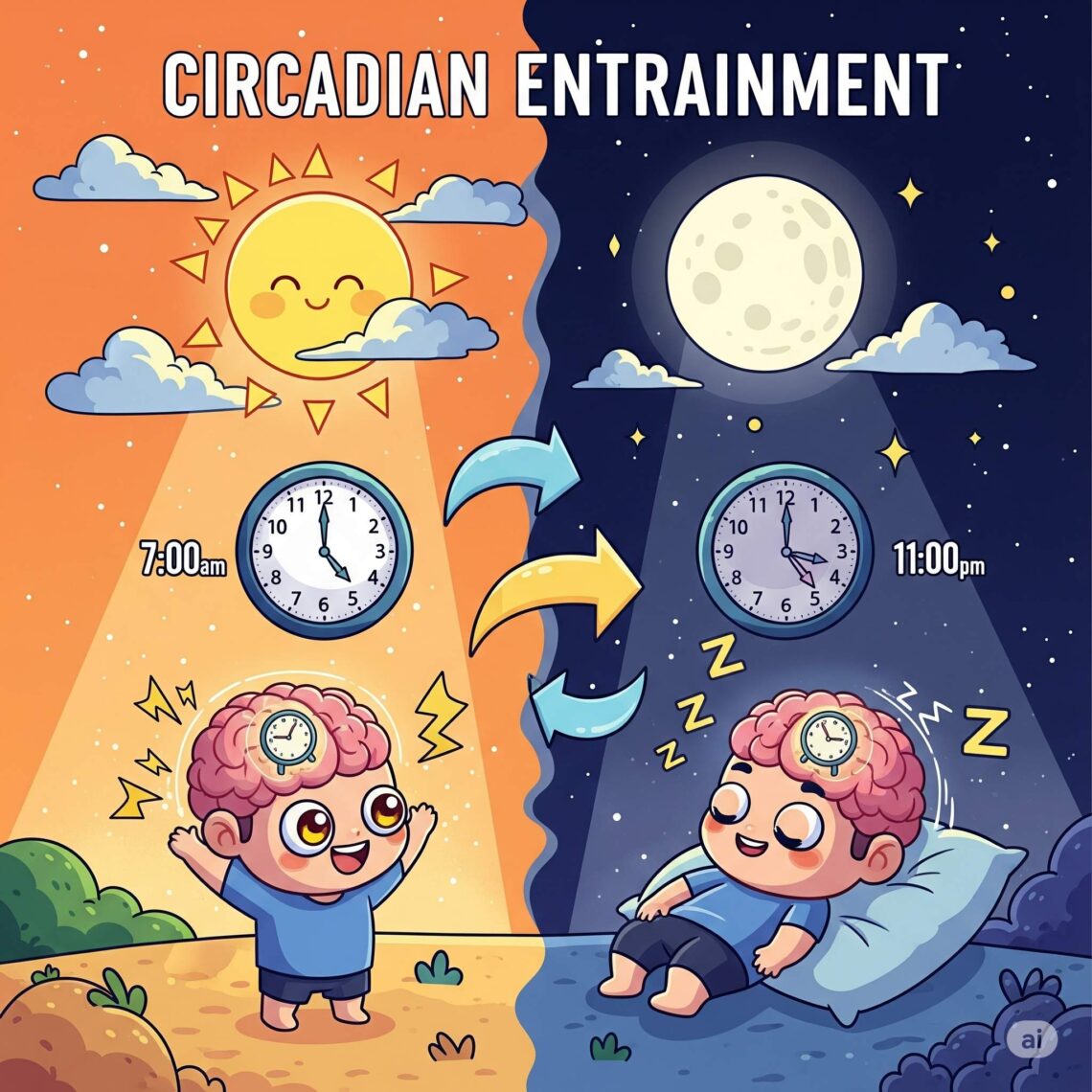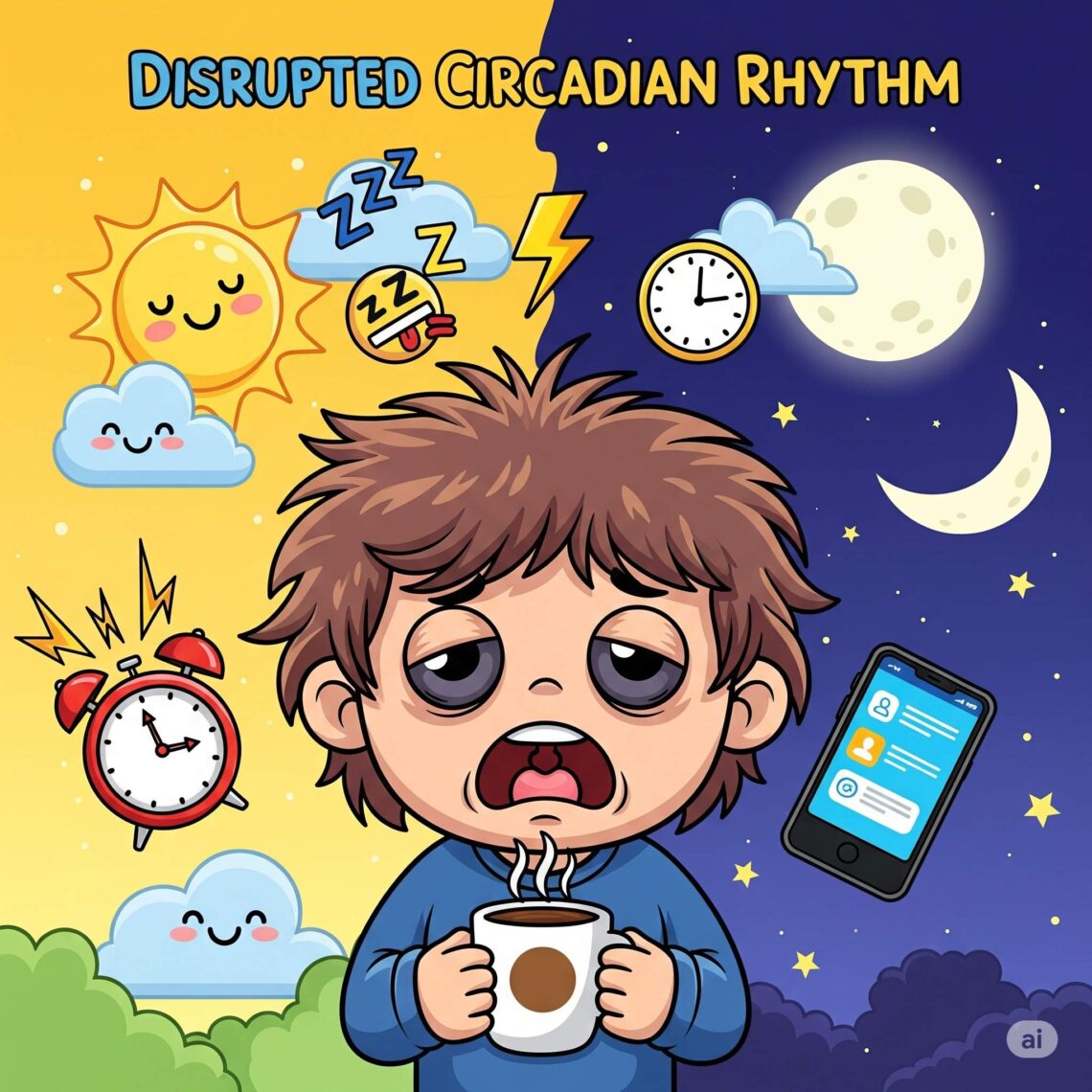The suprachiasmatic nucleus (SCN) is a tiny but powerful structure in the brain that plays a massive role in how our bodies function on a daily basis. Often referred to as the master clock, the suprachiasmatic nucleus controls your circadian rhythm—the internal 24-hour cycle that regulates sleep, hormone release, body temperature, digestion, and other essential biological processes. Understanding what the suprachiasmatic nucleus does, how it works, and why it matters is key to improving your sleep, mental clarity, and overall health. Where Is the Suprachiasmatic Nucleus Located? The suprachiasmatic nucleus is located in the hypothalamus, just above the optic chiasm…
-
-
Circadian entrainment refers to the synchronization of your circadian rhythm—your internal 24-hour biological clock—with environmental signals called zeitgebers (German for “time givers”). The most powerful zeitgeber is natural light, but other cues include meal timing, physical activity, and temperature. Your brain’s suprachiasmatic nucleus (SCN), located in the hypothalamus, acts as the master clock. It receives information from the eyes and adjusts the timing of sleep, hormone production, and body temperature accordingly. When light hits the retina in the morning, it signals the SCN to suppress melatonin and increase alertness. As evening approaches and light decreases, melatonin levels rise, preparing your…
-
A disrupted circadian rhythm can throw your entire body off balance. From poor sleep to chronic fatigue, mood swings, and digestive issues, the effects of a misaligned internal clock are far-reaching. Understanding what causes circadian rhythm disruptions and how to restore your natural body clock is essential for long-term health and well-being. The circadian rhythm is your body’s internal 24-hour clock. It regulates sleep-wake cycles, hormone production, body temperature, digestion, and other biological processes. This rhythm is influenced primarily by light exposure, particularly sunlight, and helps determine when you feel alert or sleepy. When this rhythm is aligned, you feel…


